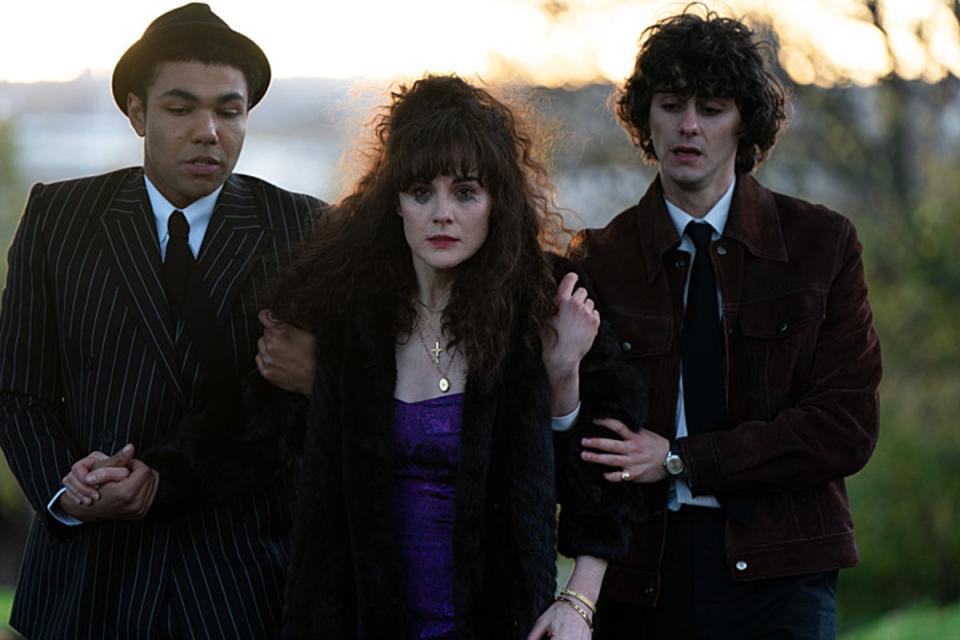This Town on BBC One review: the music is great, shame about the story
Well… rarely have I seen a trailer as misleading as the one for Steven Knight’s new 1981-set six part BBC series. To a soundtrack of pulsating ska, we see blasts of visceral band rehearsals, riots, fist fights, machine gun fire, and the lead singer in said rehearsals – a Strokes-haired, leather jacketed Ben Rose as Bardon Quinn – screeching, “We’re gonna take over the fucking world!” at the Coventry skyline.
For the duration of its two and a half minutes, the sexy, exciting soundbites keep coming. “If your pretty face is good enough for the IRA, it’s good enough for Top Of The Pops!”; “He thinks sex and drugs will make him a better songwriter!”; “There’s a bomb at Coventry train station!”; “I no longer want this band to work. I f**king NEED it to work!”
And finally: “We’re either going to fly… or we’re going to crash and burn!”
It does not seem unreasonable, therefore, to go into This Town expecting a flashy, fast paced story of a band on the rise set against a backdrop of socio-economic chaos. But instead, we largely spend our time watching Dante Williams (Levi Brown), save for a couple of fights, mope quietly and moodily around Birmingham and Coventry.

Dante is a genius poet. We know this because everyone keeps saying that he is a genius poet. Also because when he goes to chat up a girl he likes who works in a record shop – “I used Leonard Cohen as an excuse to come and see you. He of all people would understand” – he tells her that “the words come and land in my skull like a flock of pigeons on a tower block.” And if you’re thinking, “Wow, even by teenager-who-thinks-he’s-a-poet standards, that sounds a bit silly,” then you’ve not heard anything yet. “Now that I’m a singer as well as a poet, I’ve made a resolution to only use seven hundred words a day, to save my vocal chords,” he later explains to Jeannie Keefe (Eve Austin), the would-be Marr to his would-be Morrissey.
It’s worth mentioning that at the point Dante says this, the pair have yet to actually play a complete song together: preferring to spend their time prevaricating about where to record a magical song that Dante thinks is going to make the record shop girl fall in love with him. By the end of episode four we have only seen a single quiet, slow, acoustic guitar half-run-through of an underwhelming song – it sounds like Jamie T’s Sheila, but is called Estella (Estella being Michelle Dockery’s character who… it doesn’t really matter).
Elsewhere, Bardon’s dad is heavily involved in the Coventry branch of the IRA. Dante has some family shenanigans going on. Oh, and there’s a run-down club owner who says things like: “This blackened shell in which you now stand will soon become a cathedral: the broken stage and dancefloor will become altar, font and pews… dedicated to the worship of live music.”
The period specific sets are perfect. The soundtrack – Desmond Dekker’s Israelites, The Specials’ A Message To You Rudy, The Selector’s On My Radio, couple of Jimmy Cliff songs – is obviously great (if also obvious). But it is often just that: a soundtrack, playing lightly in the background while people talk about maybe doing a rehearsal sometime. All of which would be fine had we not been made to expect something a little more visceral.
Streaming on BBC One and iPlayer from March 31


